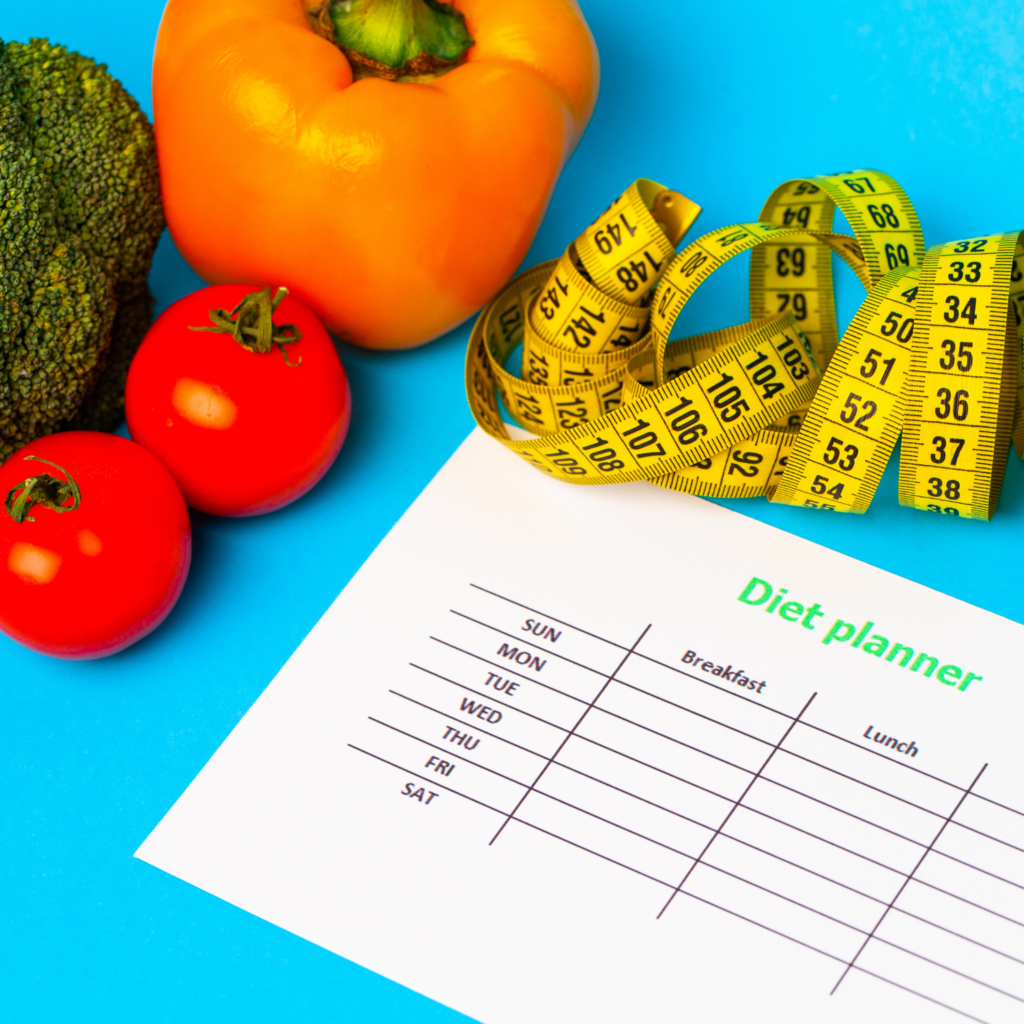If you’re ready to align with your body’s changing needs and feel more in control of your health, this one’s for you.
The Silent Struggle of Midlife Weight Gain
If you’ve found yourself facing midlife weight gain despite eating well, staying active, and doing what used to work, it’s not all in your head. Your jeans feel tighter even though your habits haven’t changed. Your energy has dipped, and the scale keeps creeping up. No matter how clean you eat or how hard you try, nothing seems to work.
Here’s the truth: your body isn’t failing you—it’s speaking to you. And it’s time we start listening.
For too long, midlife weight gain has been treated like a personal failure. We’re told to count calories, cut carbs, work out harder, and push through exhaustion. But what if your body is actually doing exactly what it’s supposed to?
This isn’t about trying harder. It’s about trying smarter. Because in midlife, the old rules don’t work and you deserve tools that meet you where you are now.
In this post, we’ll break down what you should know about weight gain during perimenopause and menopause, what your body is really asking for, and how to finally feel good in your skin again without the shame spiral or another one-size-fits-all diet.
If you’ve been feeling frustrated, confused, or disconnected from your body, this one’s for you. We’ll cover:
- What’s really happening in your body and why weight gain is not your fault
- How chronic stress and cortisol can block weight loss
- Why traditional diets and intense workouts often backfire in midlife
- 5 hormone-supportive lifestyle shifts

Your Body Is Changing—And That’s Not a Bad Thing
As you move through your 40s and 50s, hormonal changes start to reshape how your body stores fat, burns energy, and responds to stress. This is a natural phase not a personal failure.
Here’s what’s happening:
- Estrogen starts to fluctuate and decline, which impacts insulin sensitivity, increases belly fat, and makes the body more reactive to stress.
- Progesterone also declines, which can affect your sleep, mood, and resilience.
- Testosterone drops slowly affecting motivation, engagement, and muscle strength.
- Cortisol, your main stress hormone, becomes more influential, often leading to fatigue and belly weight gain.
These hormonal shifts can make weight loss more challenging but they don’t make it impossible. You simply need a strategy that honors where your body is now.

The Stress Connection
When your body is stressed, it prioritizes survival. Even if you’re doing “everything right,” chronic stress keeps the weight on, especially around the belly.
Cortisol, released in response to stress, will:
- Disrupt blood sugar and insulin response
- Increase cravings for sugar and processed carbs
- Interfere with sleep, further elevating cortisol
- Suppress thyroid function
- Promote visceral fat storage—deep belly fat that increases risk for chronic conditions like heart disease and insulin resistance
Here’s the tricky part: not all stress feels like stress. Being constantly busy, pushing through fatigue, saying yes to everything are normalized behaviors that keep your body in fight-or-flight.
Your nervous system may be screaming for a reset.

Why Traditional Diets Don’t Work Anymore
Most diet plans were made for younger, hormonally balanced bodies, not women in midlife.
Here’s why they can do more harm than good:
- Calorie restriction increases cortisol, which triggers fat storage
- Low-protein meals or erratic eating cause energy crashes and cravings
- Too much high-intensity cardio taxes your adrenals, which are now helping produce hormones like estrogen and progesterone.
And let’s not forget the emotional toll of restarting a new plan every few months without results.
This is the phase where nourishing, sustainable, hormone-aware strategies lead to real transformation.
5 Shifts That Help Reduce Midlife Weight Gain
If you’ve been struggling with midlife weight gain, the answer is more support. To truly feel better in your body and create lasting change, you need strategies that work with your hormones instead of against them.

1. Support Your Nervous System
You can’t lose weight if your body doesn’t feel safe—and safety starts with your nervous system.
- Prioritize deep, restorative sleep: Aim for 7–9 hours and create a calming wind-down routine to cue your body that it’s time to rest. Reducing blue light and stimulation in the evening can help your hormones reset overnight.
- Practice nervous system resets daily: Even 5 minutes of slow breathing, meditation, or lying down with your legs up the wall can shift you from fight-or-flight into rest-and-digest mode.
- Shift your inner dialogue: Compassion and patience go further than pressure. When you stop fighting your body and start listening to it, everything begins to shift.
Want more tips? Explore the Relax Pillar in Pillars of Health: Part 1 blog post.

2. Shift When You Eat, Not Just What You Eat
Midlife metabolism is as much about timing as it is about content. Eating in alignment with your circadian rhythm helps hormones and digestion work in your favor.
- Try gentle intermittent fasting: A 12–14 hour overnight fast gives your body time to lower insulin and access stored fat without adding stress.
- Stick to a consistent eating window: Eating your meals during a set 8–10 hour period each day supports blood sugar, reduces inflammation, and calms your digestive system.
- Avoid late-night eating: Give your body time to rest, digest, and repair overnight. Small changes like finishing dinner by 7pm can make a big difference.
Learn how this fits into hormone shifts in my blog post Cycle Syncing in Midlife: A Hormone Reset Guide.
3. Eat for Hormone Balance
Food is more than fuel—it’s communication. What you eat sends messages to your hormones every single day.
- Build your plate with intention: Prioritize high-quality protein, fiber-rich plants, and healthy fats to regulate blood sugar and reduce cravings.
- Avoid processed and refined foods: These disrupt your metabolism and spike insulin, making weight loss harder and energy lower.
- Don’t fear carbs: Your body needs them—just choose nutrient-dense ones like sweet potatoes, root vegetables, or berries, and pair them with protein or fat.
For more on food and hormone synergy, see How to Naturally Balance Key Hormones.

4. Move with Your Body, Not Against It
In midlife, more intensity doesn’t mean better results—more alignment does.
- Strength training is essential: It preserves lean muscle, supports metabolism, and helps balance blood sugar and insulin.
- Incorporate restorative movement: Walking, yoga, stretching, and other low-impact activities help calm cortisol while keeping you active.
- Prioritize recovery: Rest days, stretching, and downtime are not optional—they’re powerful tools to keep your hormones in balance and prevent burnout.
For inspiration on sustainable movement, check out Why and How to Move Your Body More.

5. Build Meaningful Connections
You don’t have to do this alone—and you’re not meant to.
- Supportive relationships lower cortisol and boost resilience. Whether it’s a friend, coach, group, or partner, connection brings safety to your nervous system.
- Make time for heart-centered connection: Laughter, hugs, vulnerable conversations, and shared meals send your body the message that it’s safe to heal.
- Let go of energy-drainers: Part of owning your health is protecting your peace. Boundaries are a form of self-care, too.
Dive into how connection and community play a role in hormone health in Pillars of Health: Part 2.
For a deeper look at the mindset shifts that support long-term results, visit my post: How to Lose Weight and Keep It Off—no extremes, no shame, just sustainable change.
You Have More Power Than You’ve Been Told
These shifts work in midlife because they’re based on what your body is truly asking for: rhythm, nourishment, recovery, and connection.
We’re not meant to live in constant stress or chase weight loss at the expense of our well-being. It’s time to support your body with tools that are rooted in care—not punishment.
You’re in a new phase of life that calls for new tools and deeper support.
Want personalized guidance? I offer a Free Mini 1:1 Session to help you get clear on what’s working, what’s not, and how to take your next step forward.
Ready for a customized plan that works with your hormones and your life? The 30-Day Wellness Blueprint gives you a personalized, realistic roadmap to feeling better in your body without extremes or overwhelm.
This is your time to tune in, take action, and own your health with confidence, compassion, and tools that truly work in midlife.
The content provided in this post is for informational purposes only and is not intended to be a substitute for professional medical advice, diagnosis, or treatment. Always seek the advice of your physician or other qualified health provider with any questions you may have regarding a medical condition. Never disregard professional medical advice or delay in seeking it because of something you have read in this post.















+ Show / Hide Comments
Share to: